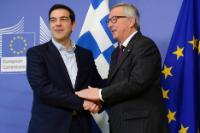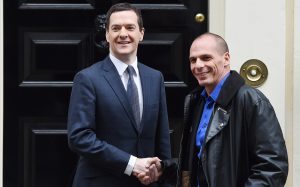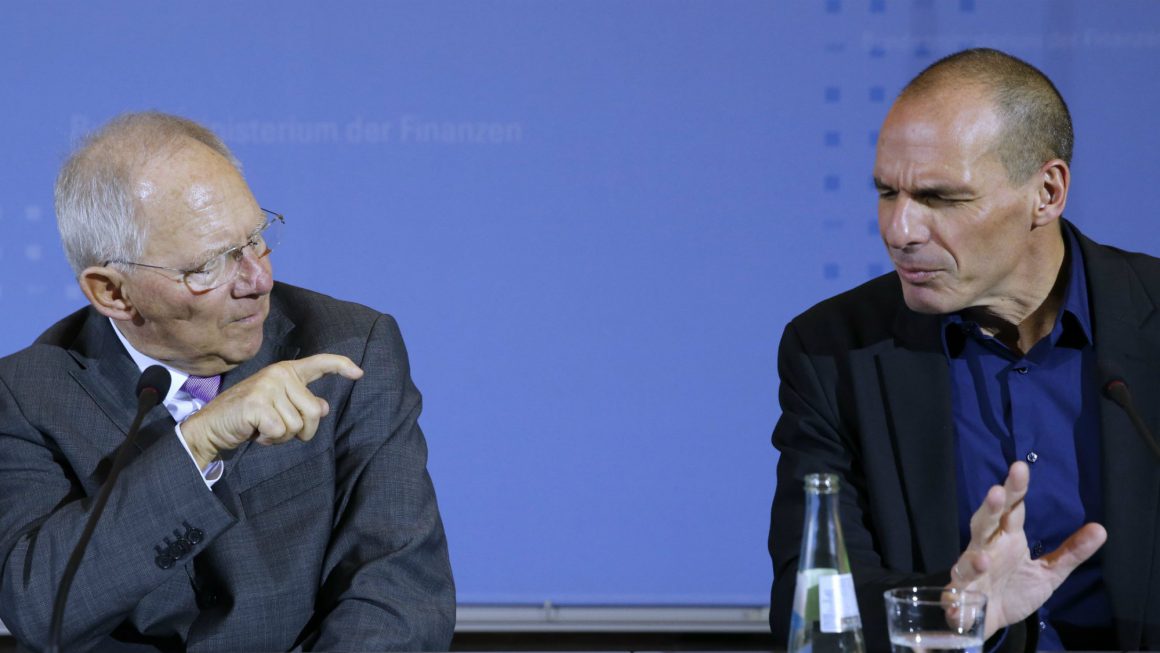This has been a week where Greece has dominated the European headlines. However, as a key protagonist, the new Greek Finance Minister Yanis Varoufakis, has pointed out, every time this happens it is not in Greece’s interest. There is now an apparent rift between Greece and Germany, as the two countries represent conflicting ideologies and world views. Let’s see how the events unfolded during the week.
On Tuesday, 3 February, Greek Prime Minister Alexis Tsipras met with Matteo Renzi. The Italian Prime Minister said his government would support Greece’s efforts to renegotiate its debt and climb out of a crushing, six-year recession, but that “European rules” needed to be respected by all EU member states.
 Tsipras met with Jean Claude Juncker on Wednesday, 4 February. The President of the European Commission was predictably amicable but less receptive of the Syriza leader’s ideas about debt restructuring. Juncker had already told lawmakers in the European Parliament on Tuesday: “We will not change everything just because there has been an electoral result which pleases some people and displeases others.”
Tsipras met with Jean Claude Juncker on Wednesday, 4 February. The President of the European Commission was predictably amicable but less receptive of the Syriza leader’s ideas about debt restructuring. Juncker had already told lawmakers in the European Parliament on Tuesday: “We will not change everything just because there has been an electoral result which pleases some people and displeases others.”
The Greek premier continued his tour with a stopover in Paris for talks with François Hollande. President Hollande offered sympathy to Greece, saying austerity cannot be the only option. “I am very attached to the eurozone, but I am conscious that endless austerity cannot be a solution — neither for the Greeks nor for [other] Europeans,” he said during a two-hour press conference at the Elysée Palace on Thursday, 5 February. “We need to reach an agreement.”
 Meanwhile, Varoufakis had been meeting his fellow Finance Ministers of the UK, Italy and France, as well as Mario Draghi head of the ECB. His visit to 11 Downing Street with George Osborne was especially prominent in the media, not so much for its outcome but rather for the sartorial choices of Mr. Varoufakis. George Osborne warned that the standoff between Greece and its international creditors could derail Britain’s recovery, describing the dead-end as the biggest threat to the global economy.
Meanwhile, Varoufakis had been meeting his fellow Finance Ministers of the UK, Italy and France, as well as Mario Draghi head of the ECB. His visit to 11 Downing Street with George Osborne was especially prominent in the media, not so much for its outcome but rather for the sartorial choices of Mr. Varoufakis. George Osborne warned that the standoff between Greece and its international creditors could derail Britain’s recovery, describing the dead-end as the biggest threat to the global economy.
Varoufakis has used his tour to highlight the key elements of his new plan for the Greek debt. These include the issuance of two types of bonds. The first type, linked to nominal economic growth, would replace European rescue loans, and the second, which he termed “perpetual bonds”, would replace European Central Bank-owned Greek bonds.
However, in a leaked document Germany dismissed any notion of changing the status quo of the memorandum programme for Greece in advance of the meeting between Mr. Varoufakis and German Finance Minister Wolfgang Schäuble on 5 February. In their press conference the two men did not seem to have reached any sort of agreement.
With the ECB’s action to cut off the Greek banks from the ESM and instead use the ELA mechanism for liquidity, and Jeroen Dijselbloem’s outright rejection of a ‘bridge loan’, the situation is now at a standstill. While Greece sees the first demonstrations in support of its government, the current bailout programme ends on 28 February and Grexit re-enters the public discourse.



